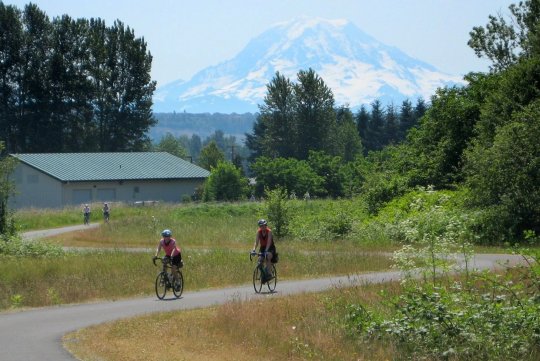
Dr. Howard Frumkin explains how contact with nature can provide mental, emotional, and physical benefits.
Ever wonder why you feel so much better after getting outside and into nature? Dr. Howard Frumkin has spent years studying the effects of nature on human health. As a professor of Environmental and Occupational Health Sciences at the University of Washington School of Public Health, Dr. Frumkin has the unique experience of examining the medical and health benefits of time spent in the outdoors from a scientific perspective. And he has a lot of positive things to say about the findings.
“Nature contact is linked to reduced stress, better mental functioning, smoother recovery from heart attacks and surgery, stronger connections among people, more physical activity, less obesity, healthier pregnancy outcomes, improved immune function—the list goes on. We can only dream of a medication that yields this many health benefits, as safely and as inexpensively,” explains Dr. Frumkin.
While the exact explanations for how and why nature provides us all these health benefits needs further study, the basic link is now well established. Contact with nature can range from visual only to full immersion—for example, students who have a view of green plants in their classroom have visual contact with nature. If those same students were to take a hike in a forest, they would experience immersive contact with the natural world. Both types of contact have been proven to produce reduced stress and depression, improved sleep, reduced ADHD, lower blood pressure, and greater happiness in subjects.
Contact with nature might even save lives—patients with cancer have experienced improved health, better pain control, and a longer life expectancy.
Want to try out Dr. Frumkin’s advice? Easy! Next time you are feeling anxious or tired, try the oldest remedy on earth and get active outdoors.
We can’t think of a more inviting Rx to get from the doctor.
